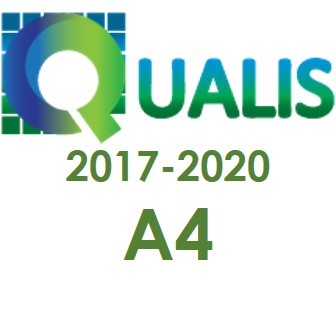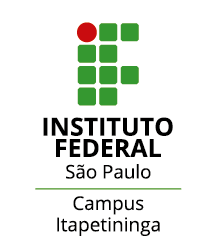Desafios e propostas para a universalização dos Direitos Humanos à Água e ao Saneamento
Palavras-chave:
Qualidade de Vida. Relatórios Oficiais das Nações Unidas. Acesso universal ao saneamento. Abastecimento de água. Análise de Conteúdo.Resumo
O reconhecimento dos Direitos Humanos à Água e ao Saneamento, em 2015, pela ONU, representa um importante marco para o campo humanitário, por institucionalizar a relevância do acesso à água potável e ao esgoto de qualidade como elementos essenciais à dignidade e à vida humana. Pelo estudo realizado dos relatórios aplicando a Análise de Conteúdo, foram identificadas cinco classes de análise: Social, Econômica, Ambiental, Internacional e Técnica, as quais permitiram alcançar os objetivos de classificar os principais desafios e propostas à universalização e de sintetizar a discussão de governança dos serviços, além de demonstrar a relevância e a atualidade do tema, dado que a universalização ainda é um grande desafio, como será apresentado neste artigo.
Downloads
Referências
BARDIN, L. Análise de conteúdo. São Paulo: Edições 70, 2011.
GIL, A. C. Métodos e técnicas de pesquisa social. 6. ed. São Paulo: Atlas, 2008.
HELLER, L. Os direitos humanos à água e ao saneamento. Rio de Janeiro: Editora Fiocruz, 2022.
NAÇÕES UNIDAS. Transformando Nosso Mundo: A Agenda 2030 para o Desenvolvimento Sustentável. 2015. Disponível em: https://brasil.un.org/pt-br/91863-agenda-2030-para-o-desenvolvimento-sustent%C3%A1vel. Acesso em: 11 ago. 2023.
UNITED NATIONS CHILDREN’S FUND/WORLD HEALTH ORGANIZATION. Progress on household drinking water, sanitation and hygiene 2000–2022: special focus on gender. Nova York: United Nations Children’s Fund (UNICEF) and World Health Organization (WHO), 2023. Disponível em: https://washdata.org/reports/jmp-2023-wash-households-launch. Acesso em: 25 jul. 2023.
UNITED NATIONS. Report A/HRC/12/24 - Human Rights Obligations related to Access to Sanitation. Geneva: United Nations, 2009a.
UNITED NATIONS. Report A/HRC/10/6 - Preliminary Report laying out the Mandate Workplan. Geneva: United Nations, 2009b.
UNITED NATIONS. Report A/RES/64/292 - The human right to water and sanitation. Geneva: United Nations, 2010a.
UNITED NATIONS. Report A/65/254 - The MDGs and the human rights to water and sanitation. Geneva: United Nations, 2010b.
UNITED NATIONS. Report A/HRC/15/31. Human Rights Obligations Related to Non-State Service Provision in Water and Sanitation. Geneva: United Nations, 2010c.
UNITED NATIONS. Report A/HRC/15/31/Add.1 - Progress report on the compilation of Good Practices. Geneva: United Nations, 2010d.
UNITED NATIONS. Report A/HRC/15/31/Add.1/Corr.1 - Corrigendum. Geneva: United Nations, 2010e.
UNITED NATIONS. Report A/66/255 - Financing for the Realization of the Rights to Water and Sanitation. Geneva: United Nations, 2011a.
UNITED NATIONS. Report A/HRC/18/33 - Planning for the realization of the rights to water and sanitation. Geneva: United Nations, 2011b.
UNITED NATIONS. Report A/HRC/18/33/Add.1 - Good practices compilation. Geneva: United Nations, 2011c.
UNITED NATIONS. Report A/67/270 - Integrating non-discrimination and equality into post-2015 development agenda for water, sanitation and hygiene. Geneva: United Nations, 2012a.
UNITED NATIONS. Report A/HRC/21/42 - Stigma and the realization of the human rights to water and sanitation. Geneva: United Nations, 2012b.
UNITED NATIONS. Report A/68/264 - Wastewater management in the realization of the rights to water and sanitation. Geneva: United Nations, 2013a.
UNITED NATIONS. Report A/HRC/24/44 - Sustainability and non-retrogression in the realization of the rights to water and sanitation. Geneva: United Nations, 2013b.
UNITED NATIONS. Report A/69/213 - Participation in the realization of the human rights to water and sanitation. Geneva: United Nations, 2014a.
UNITED NATIONS. Report A/HRC/27/55 - Common violations of the human rights to water and sanitation. Geneva: United Nations, 2014b.
UNITED NATIONS. Report A/HRC/27/55/Add.3 - Addendum - Handbook for realizing the human right to safe drinking water and sanitation. Geneva: United Nations, 2014c.
UNITED NATIONS. Report A/70/203 - Different levels and types of services and the human rights to water and sanitation. Geneva: United Nations, 2015a.
UNITED NATIONS. Report A/HRC/30/39.Add.1 - Priorities for the period 2014–2017. Geneva: United Nations, 2015b.
UNITED NATIONS. Report A/HRC/30/39 - Affordability of water and sanitation services. Geneva: United Nations, 2015c.
UNITED NATIONS. Report A/71/302 - Development cooperation and the realization of the human rights to water and sanitation. Geneva: United Nations, 2016a.
UNITED NATIONS. Report A/HRC/33/49 - Gender equality in the realization of the human rights to water and sanitation. Geneva: United Nations, 2016b.
UNITED NATIONS. Report A/72/127 - Development cooperation. Geneva: United Nations, 2017a.
UNITED NATIONS. Report A/HRC/36/45 - Service regulation. Geneva: United Nations, 2017b.
UNITED NATIONS. Report A/73/162 - Principle of accountability. Geneva: United Nations, 2018a.
UNITED NATIONS. Report A/HRC/39/55 - Forcibly displaced persons. Geneva: United Nations, 2018b.
UNITED NATIONS. Report A/74/197 - Impact of mega-projects on the human rights to water and sanitation. Geneva: United Nations, 2019a.
UNITED NATIONS. Report A/HRC/42/47 - Human rights to water and sanitation in spheres of life beyond the household with an emphasis on public spaces. Geneva: United Nations, 2019b.
UNITED NATIONS. Report A/75/208 - Human rights and the privatization of water and sanitation services. Geneva: United Nations, 2020a.
UNITED NATIONS. Report A/HRC/45/10 - Progressive realization of the human rights to water and sanitation. Geneva: United Nations, 2020b.
UNITED NATIONS. Report A/HRC/45/11 - Progress report (2010–2020). Geneva: United Nations, 2020c.
UNITED NATIONS. Report A/76/159 - Risks and impacts of the commodification and financialization of water on the human rights to safe drinking water and sanitation. Geneva: United Nations, 2021a.
UNITED NATIONS. Report A/48/50 - Planning and vision for the mandate from 2020 to 2023. Geneva: United Nations, 2021b.
UNITED NATIONS. Report A/HRC/48/50/Add.1 - Partnering with organizations. Geneva: United Nations, 2021c.
UNITED NATIONS. Special thematic report on climate change and the human rights to water and sanitation: Part 1 - Outlining the impacts of climate change on the human rights to water and sanitation around the world. Geneva: United Nations, 2022a.
UNITED NATIONS. Special thematic report on climate change and the human rights to water and sanitation: Part 2 - The impacts of climate change on the human rights to water and sanitation of groups and population in situations of vulnerability. Geneva: United Nations, 2022b.
UNITED NATIONS. Special thematic report on climate change and the human rights to water and sanitation: Part 3 - A rights-based approach to adaptation, mitigation, finance, and cooperation. Geneva: United Nation, 2022c.
Arquivos adicionais
Publicado
Como Citar
Edição
Seção
Licença
Copyright (c) 2024 Revista Brasileira de Iniciação Científica

Este trabalho está licenciado sob uma licença Creative Commons Attribution-NonCommercial-ShareAlike 4.0 International License.




